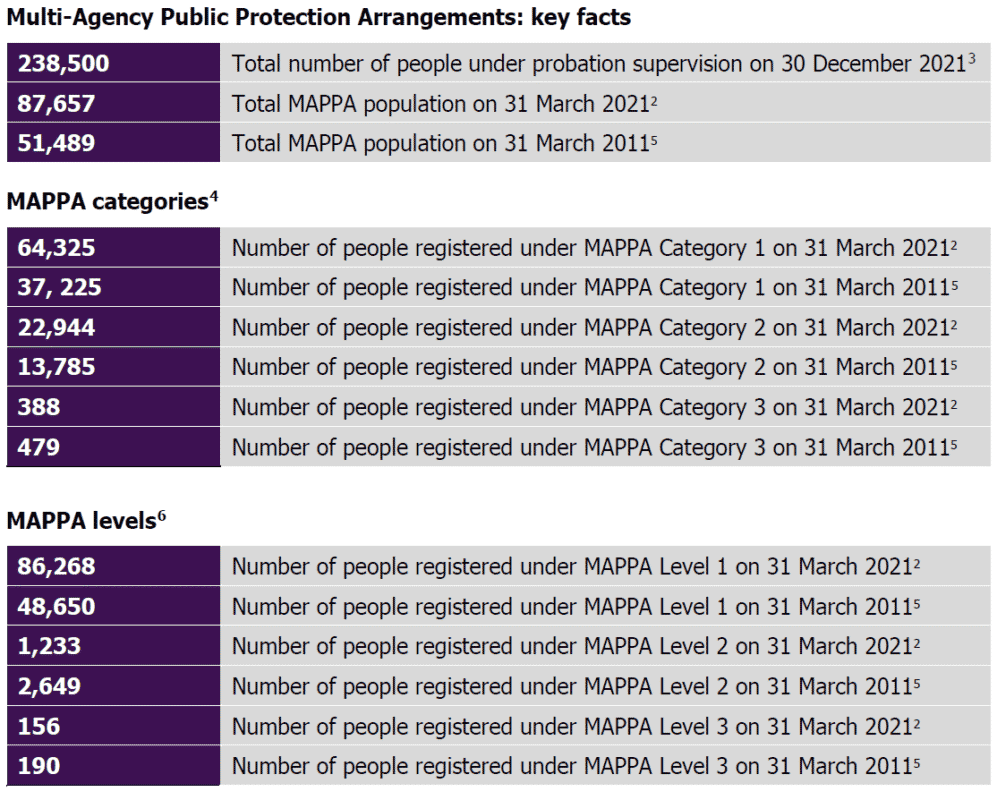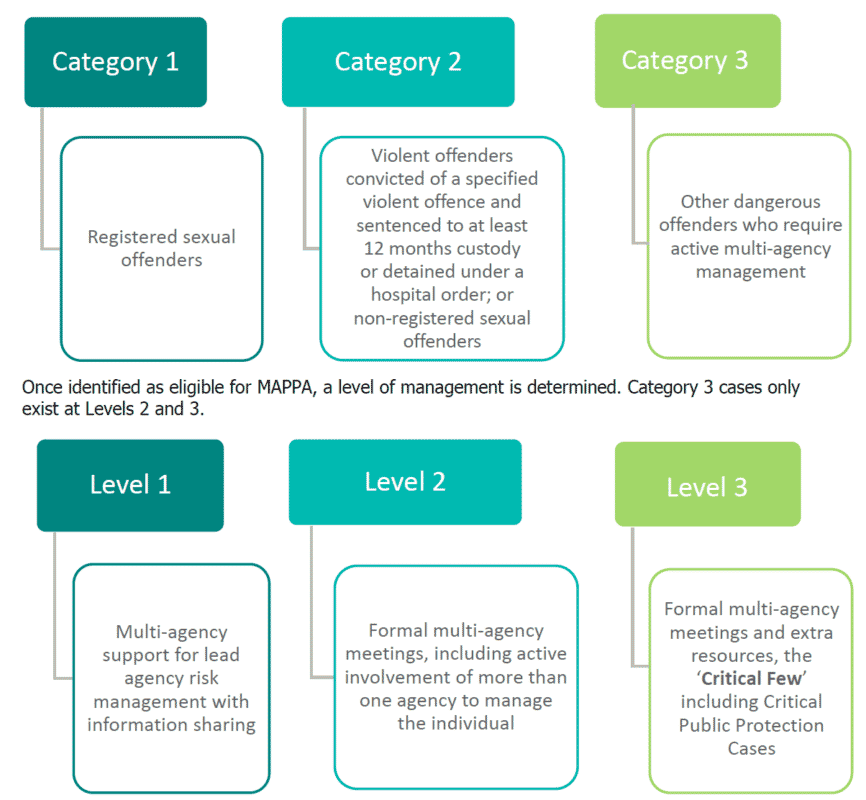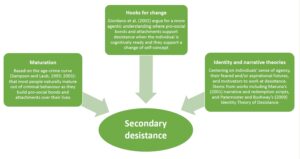Are Multi-Agency Public Protection Arrangements (MAPPA) working?
Today’s (14 July 2022) joint inspection report by HM Inspectorate of Probation, alongside HM Inspectorate of Constabulary, Fire & Rescue Services (HMICFRS), and Her Majesty’s Inspectorate of Prisons (HMIP) concludes that currently MAPPA is under-used and inconsistently applied. MAPPA is the process through which various agencies such as the police, the prison service and probation services work together – through collaboration and sharing information – to protect the public by managing the risks posed by violent and sexual offenders living in the community. MAPPA cases can also include people who are prison, preparing for release or in mental health facilities. You can see the numbers of all MAPPA cases below, it’s interesting to note that the number of people subject to MAPPA is at least 7,000 greater than the prison population.
Findings
The majority of MAPPA cases (98.4 per cent) are managed at Level 1. Having been convicted of serious sexual or violent offences, Level 1 cases should be subject to regular reviews, and the information gained shared between all agencies working with that person. Over a fifth of the Level 1 cases inspected should have been managed at Level 2, which inspectors highlighted as a concern. For too many of the Level 1 caseload, this status has little meaning and only enhanced the management of risk of harm in 32% inspected cases. In only half (53%) of cases in the community was the level and nature of contact with the case sufficient to support the case management plan. Reviewing of these cases was satisfactory in under half the cases inspected.
By contrast, the report concluded that for cases managed at Levels 2 and 3 (which involve formal multi-agency meetings), MAPPA largely achieves its aims of managing the risks that violent and sexual offenders pose to the public.
Where probation or police are the lead agency, inspectors found that effective processes are in place to identify MAPPA-eligible cases automatically at the point of sentence. However, decisions about the appropriate management level are not always made in a timely way with a clear rationale, which can negatively affect risk management and release plans for individuals leaving prison. While case management at Levels 2 and 3 is subject to regular review through multi-agency meetings, not all areas have effective processes to review Level 1 cases.
Chief Probation Inspector Justin Russell highlighted the problem:
“We have seen cases where the threshold for using MAPPA, and escalating cases to Levels 2 and 3, are too high. Some cases are only moved to Level 2 if there are no other options available, rather than reflecting a person’s behaviour or circumstances. This means that complex cases are rejected when oversight and accountability are much needed. In areas with this practice, MAPPA is becoming marginalised, undervalued, and underused by practitioners.”
Data collection and sharing was also a continuing concern from this report. A database (called ViSOR), used to store shared information on all MAPPA cases, for the past 15 years, is not being used as intended. This inspection found that, even where required, not all MAPPA cases are being recorded, and that the police are the only agency reliably adding information. ViSOR is rarely used by prison and probation staff, and most are not clear on the benefits or purpose of the system.
Conclusions
The report concludes that Level 2 and 3 MAPPA cases, are demonstrating that information sharing is succeeding in managing the most violent individuals, but points out that this is just a small percentage (less than 2%) of the MAPPA caseload. Despite the positive potential of MAPPA, inspectors found gaps in some cases – especially at Level 1. Too often, late pre-release planning for individuals being released from custody mean that important arrangements, such as accommodation, are not in place sufficiently early. Last-minute arrangements do little to ensure that individuals being released are informed about what is expected from them on release or to encourage compliance with licence conditions, and this is a potential danger to the public.
The report makes a series of recommendations which mainly focus on trying to standardise the quality of MAPPA supervision, encouraging key partners to engage in regular quality assurance practices including analysing local referral data regularly to make sure all appropriate cases are referred into MAPPA and allocated at the right level.
The report also highlights that some police officers have caseloads for managing sexual offenders on MAPPA which are much too high.











3 Responses
This is one of the most helpful blogs I have come across – there is so much jargon on MAPPA that I have been going through – I wanted to know about its efficacy in England and Wales – does the MAPPA framework reduce recidivism? I have not found force wide data from MOSOVO teams that indicates that it does.
Thanks for the good work and for putting the inspection findings in such a clear and concise way.